
TEHRAN, May 26 (Xinhua) -- The economic condition of Iranians and the hardship that they have been facing in the past years top the presidential candidates' agenda in their campaign to win people's votes.
Principlist presidential hopeful Mohsen Rezaei, who is currently Secretary of Iran's Expediency Council, announced that he will focus on resolving the country's economic problems if he wins the presidential race, semi-official Fars news agency reported on Sunday.
"The next government should work hard to settle people's economic hardships," Rezaei was quoted as saying.
"I will try to transform Iran's farming and agricultural sector, " he said, adding that he will modernize Iran's industries, especially those related to the agricultural sector.
Addressing a crowd of supporters in the northwestern city of Malekan on Sunday, Rezaei reiterated his pledge to tackle sanctions, and curb inflation and unemployment through a federal economic model, according to Press TV.
Rezaei, who is also an economic expert, attributed the depreciation of Iran's national currency, rial, to the incumbent administration's failure to save extra oil revenue.
Rezaei, also the former military commander, criticized some Iranian officials who downplay the impact of Western sanctions, saying Iranians are no longer willing to pay for such slogans.
On Sunday, another principlist candidate, Mohammad-Baqer Qalibaf, pledged to make optimum use of Iran's "abundant resources " to bring prosperity to the nation.
Addressing a group of religious figures and supporters in the central city of Yazd on Sunday, the incumbent Tehran Mayor said Iran should not be faring worse than countries that lack such abundant resources, according to Press TV.
Channeling Iran's national resources into development programs is not a difficult task, Qalibaf, the member of Principlist Coalition of 2+1, said, adding that social problems emerge when progress slows down and inequality dominates.
The other member of coalition, Ali-Akbar Velayati, on Sunday stated that the next administration must feel obligated to restore public trust via improving public welfare, reconstructing national economy and reforming foreign policy, Press TV reported.
Earlier, Velayati, a former foreign minister, had criticized high inflation rate in the country.
Velayati, also the senior advisor to Iran's Supreme Leader Ayatollah Ali Khamenei, blamed economic policies of President Mahmoud Ahmadinejad's government for the decline in the purchasing power of consumers and criticized the growing volume of imports at the expense of domestic products.
He pointed to high unemployment rate in the country and said the figure has surpassed 20 percent in some provinces which could lead to social problems, according to the report.
Earlier this month, the Iranian Statistics Center announced that inflation rate of Iran reached 29.8 percent in the first month of the current Iranian calendar year (March 21-April 20).
In April, semi-official Mehr news agency reported that the inflation rate in Iran's urban areas in the past Iranian calendar year, which ended March 20, 2013, was slightly over 31 percent.
Besides, the moderate Iranian presidential candidate Mohammad Gharazi said that he will form an "anti-inflation government" if he wins the upcoming election on June 14.
The country has been suffering from rising unemployment and declining domestic production, said Gharazi, adding that job creation can turn the tide of runaway inflation in Iran, Press TV reported on Sunday.
The country has also been hit hard by the devaluation of the national currency and the rising imports has hurt domestic production, he was quoted as saying.
Also, the prominent Iranian presidential candidate and chief nuclear negotiator of the country, Saeed Jalili, said that one of the most important tasks of the future president, and the greatest expectation of the Iranian people from him, is to resolve economic issues that the country faces today.
Moreover, the Iranian lawmaker and the candidate of presidency from the Principlist Coalition of 2+1, Gholam-Ali Haddad-Adel, told reporters on Sunday that one of the main tasks of the next government is to tackle inflation and the economic condition of low-income strata of society.
Last week, the Guardian Council announced the names of eight eligible candidates for the upcoming presidential election slated for June 14.
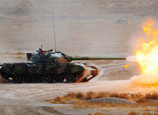


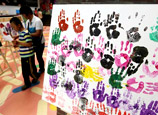
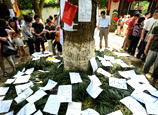
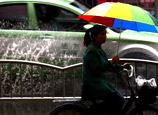
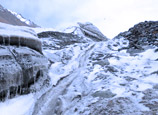


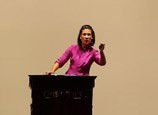






 Couple say 'I do' after 35-year wait
Couple say 'I do' after 35-year wait


![]()
